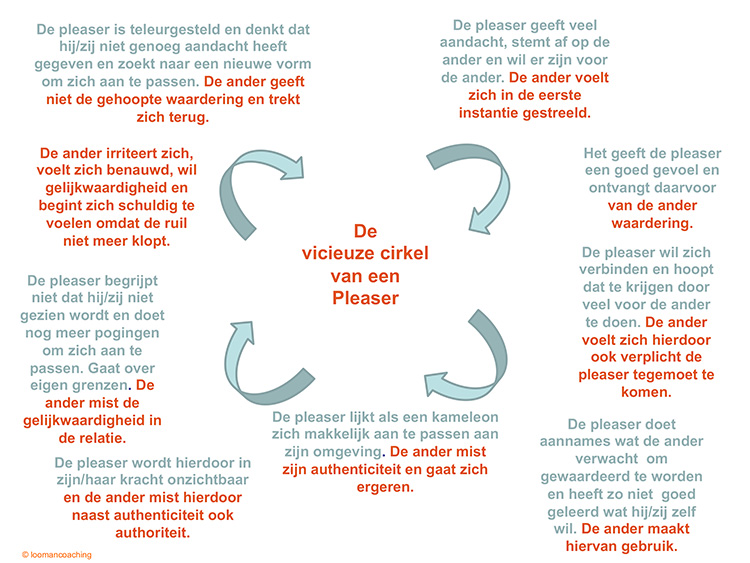
Delegating does not work for me! Why?
Still, many managers I coach find themselves frustrated that delegating through, handing over a task or assignment, doesn’t work. They discover the work isn’t done right or on time — or worse, they end up spending even more time fixing the problems than if they’d done it all themselves. So.. they rather do it themselves. Result: overachieving, working too operationally, and no time to analyze and personally grow strategically. There are four common reasons why most of us think why delegation fails. My direct reports have a:
Tuesday 06 June 2023 hits: 9774
Gedrag dat ons energie geeft versus gedrag dat ons energie kost.
Welk gedrag geeft je energie en welk gedrag gedrag kost je energie? Zoek je Energie vreters en
Tuesday 09 May 2023 hits: 12249
Leadership isn’t about your job title. You don't need to be the boss to be a leader.
My client says that she is impatient and compelling and does not realize her goals with her team. You don’t need to be the boss to be a leader says this article and I agree.
Here are three actions you can take to hone your leadership skills right now and become a highly respected and influential team member.

6 Reasons to embrace procrastination
Here are six reasons why you shouldn’t worry about putting off to tomorrow what you could do today:
Monday 27 March 2023 hits: 13918
"Ik ben een pleaser en begrijp niet dat ik mensen irriteer."
Met dit plaatje heb ik mijn client laten zien dat het een vicieuze cirkel is waar zij als pleaser inzit en dat de teleurstelling in de ander op deze manier ontstaat.
Monday 13 March 2023 hits: 11876
Regelmatig moe? Analyseer je gedachten cirkel!
MOE, zonder fysieke oorzaken, ontstaat vaak niet omdat we te veel GEDAAN hebben. We hebben vaak te veel GEDACHT, GETOBT. Analyses van deze gedachtes helpen ons om de oorzaak te ontdekken. En de realiteit er van te beoordelen.
Monday 13 February 2023 hits: 12053
F/M; It makes a difference who conducts the interview.
This article was sent to me and I like to share it because I recognize that we tend to project and ask questions according to our own preferences.
Thursday 26 January 2023 hits: 12685
Disappointed with your new job? Onboarding takes time!
Coaching leads sometimes to leaving the current job and starting a new job. I am always excited when people make a shift when they realize they are not being appreciated, or not being intellectually challenged, burned or bored out, or expected to work too many hours.
Monday 14 November 2022 hits: 15760
10 signs your Ego is in control
We talk about Ego when clients experience issues in collaboration. The first step is awareness – you need to start to become aware of when you’re ego is playing up so you can stop it before it’s too late! 10 signs:
Thursday 03 November 2022 hits: 14326
Werktevredenheid analyse
In de zomer hebben we meer tijd om na te denken of we nog tevreden zijn met ons werk. Hieronder staan vragen die betrekking hebben op vijf verschillende aspecten van werk. De analyse van de antwoorden kan je helpen duidelijkheid te geven over:
Pagina 5 van 18



